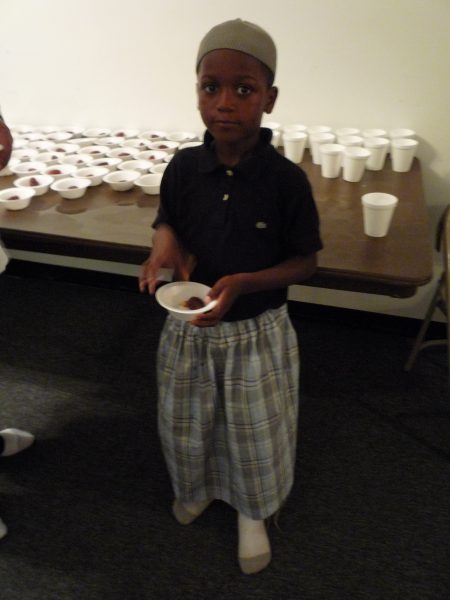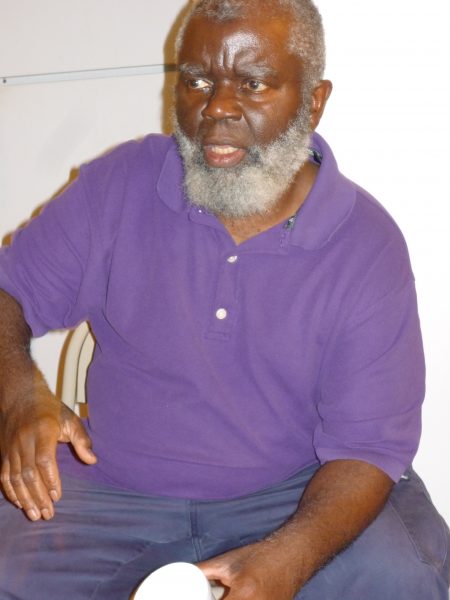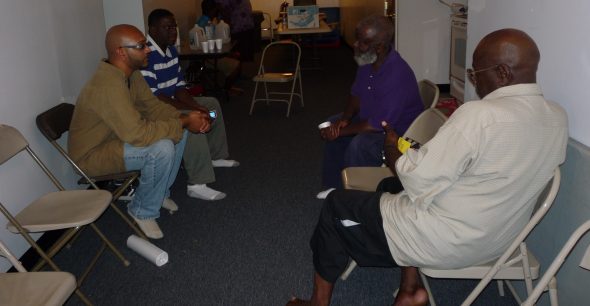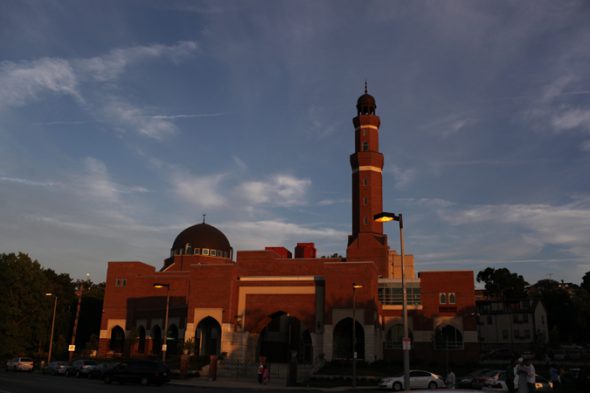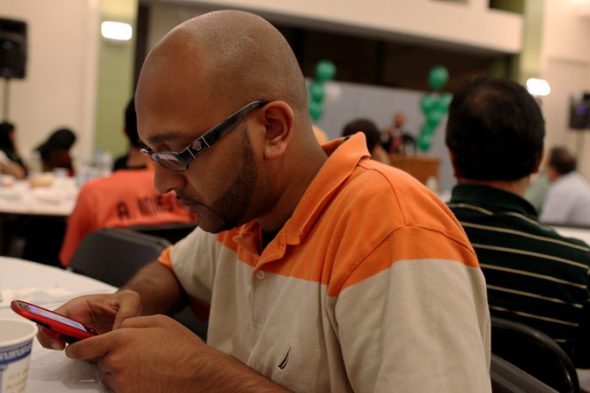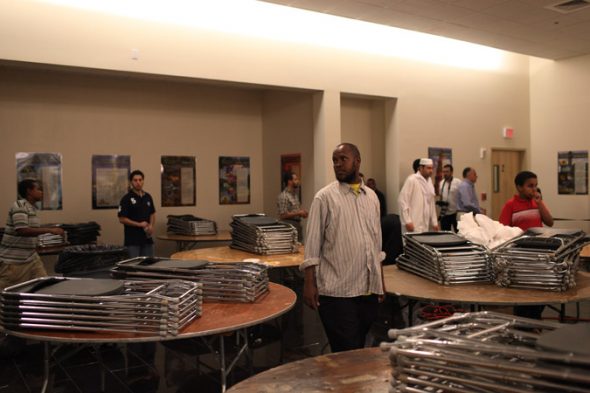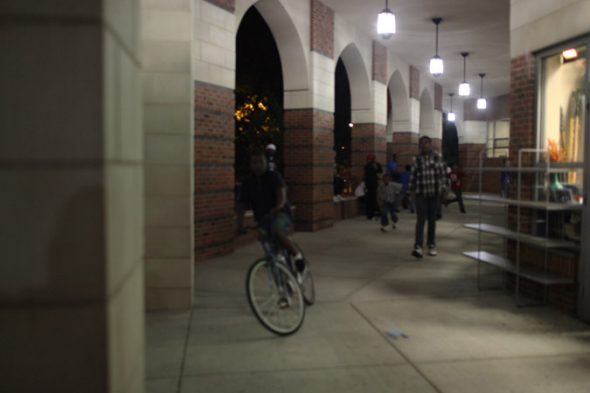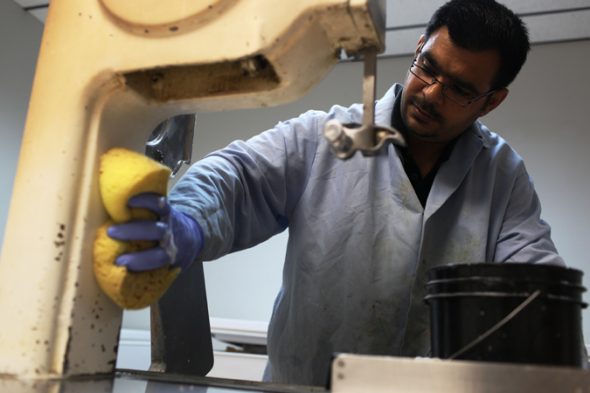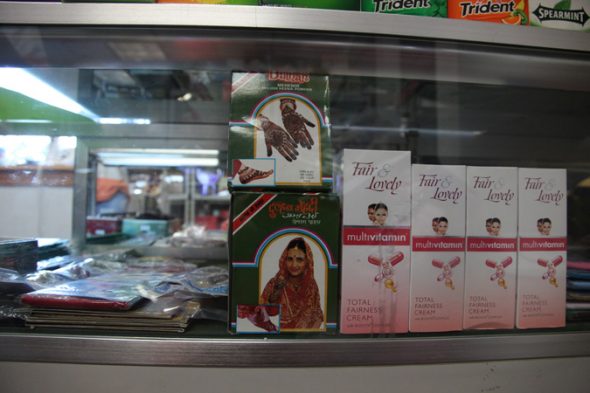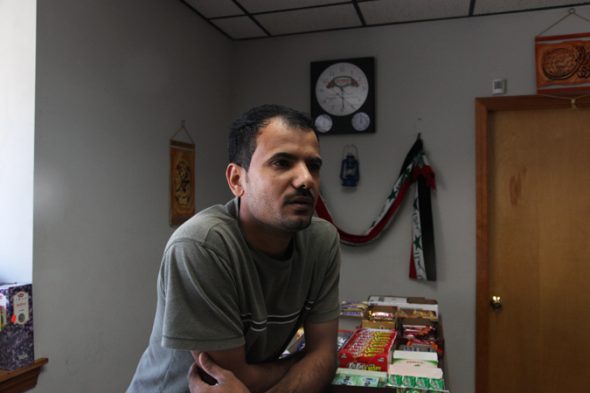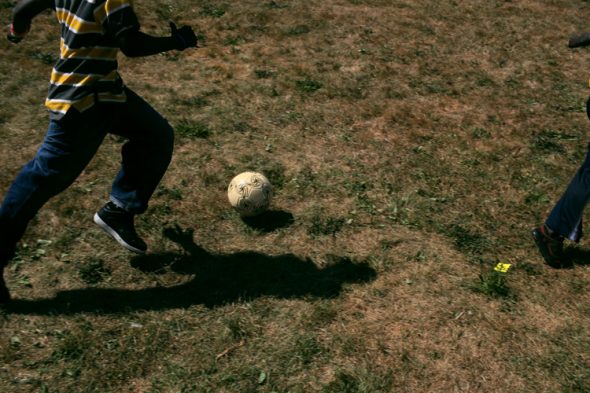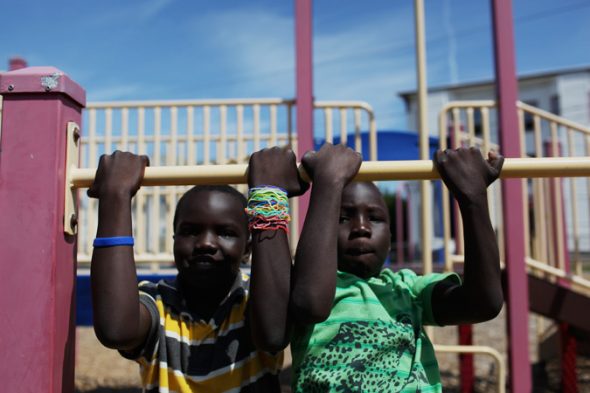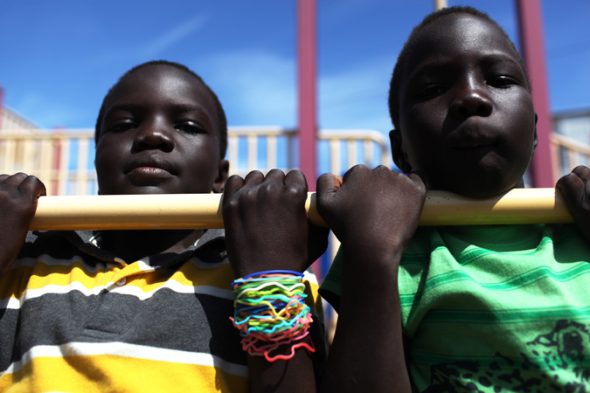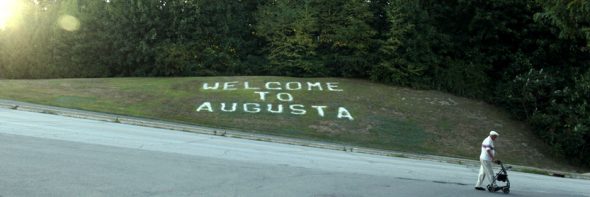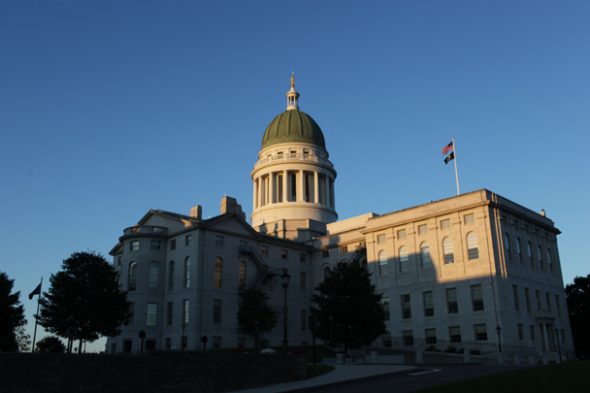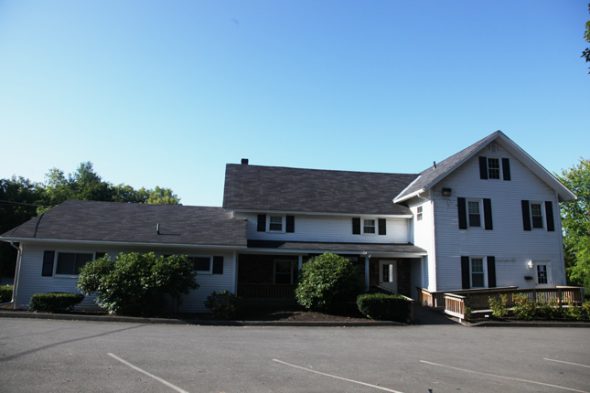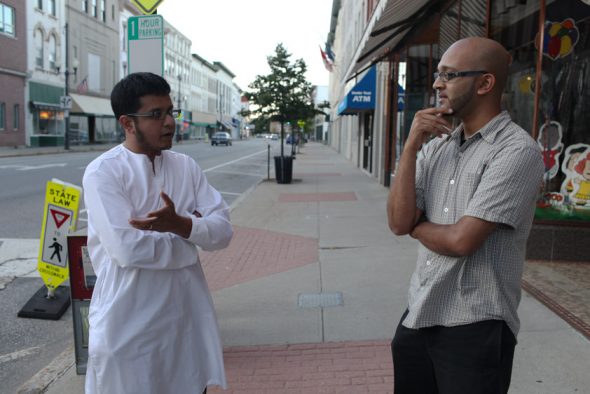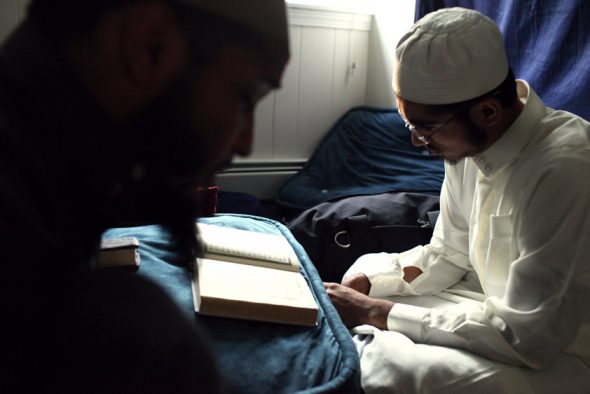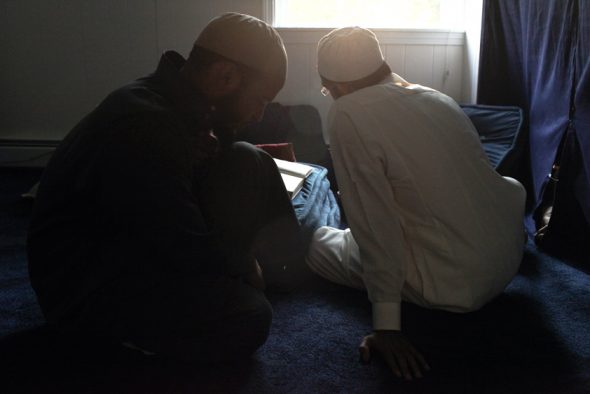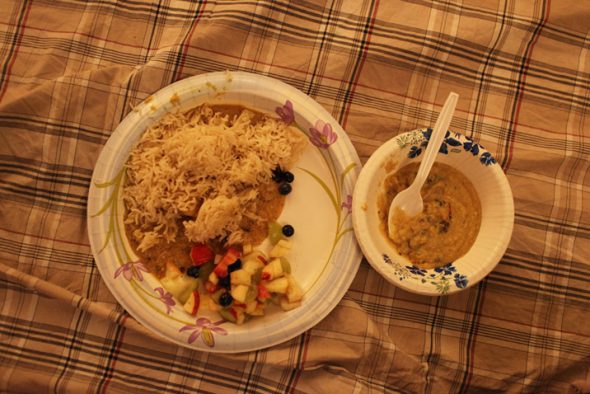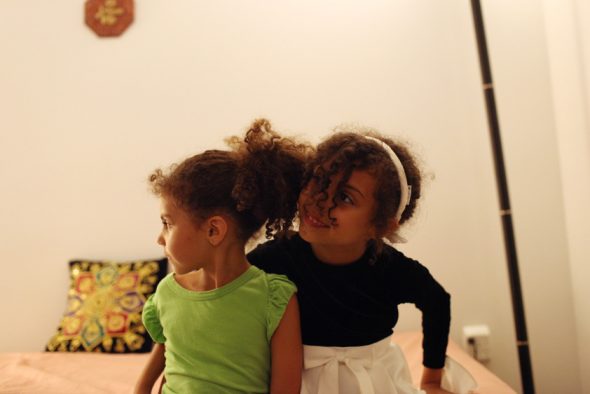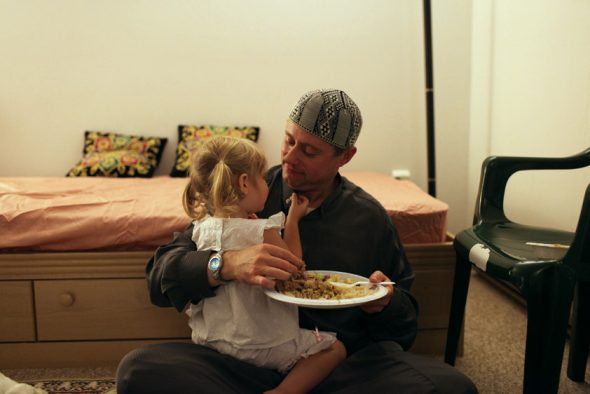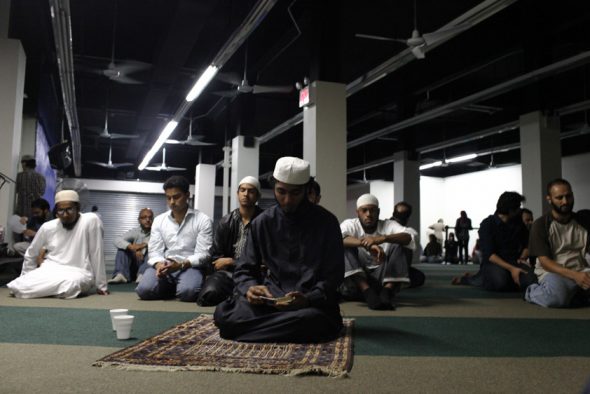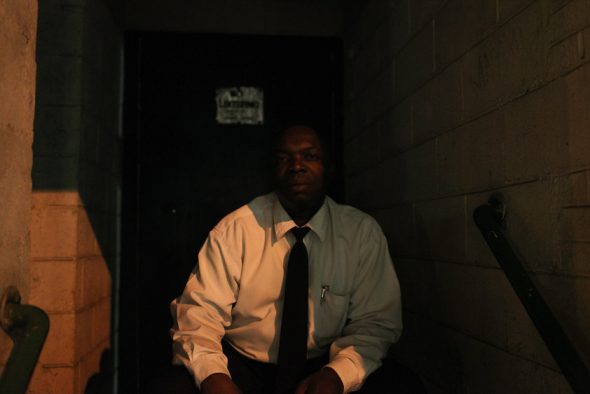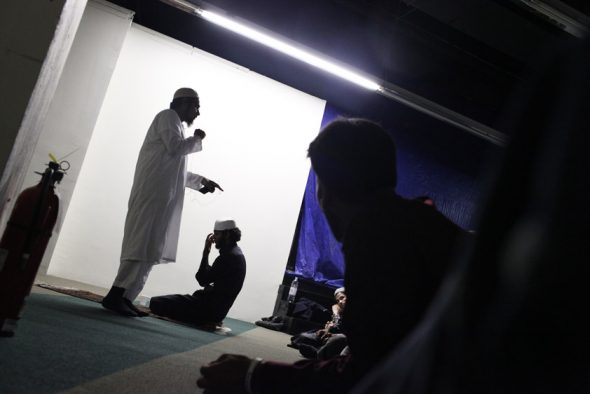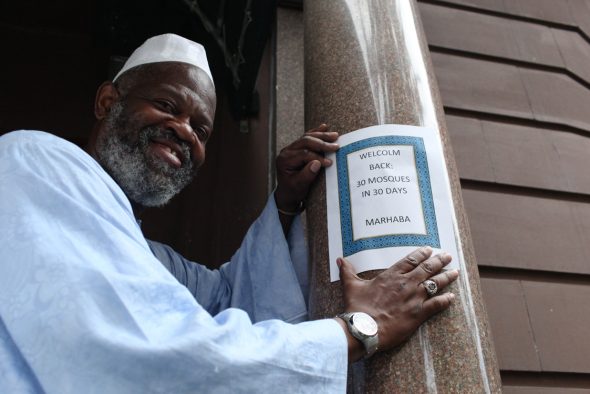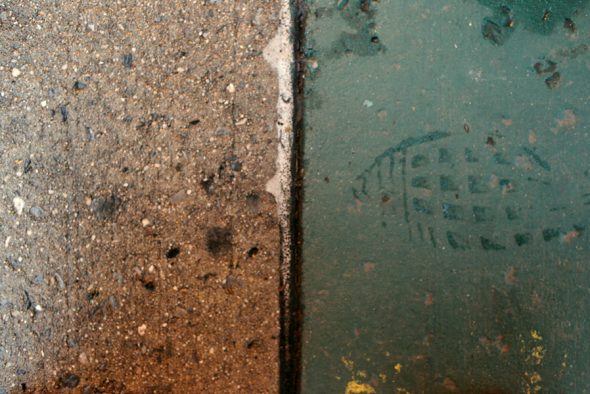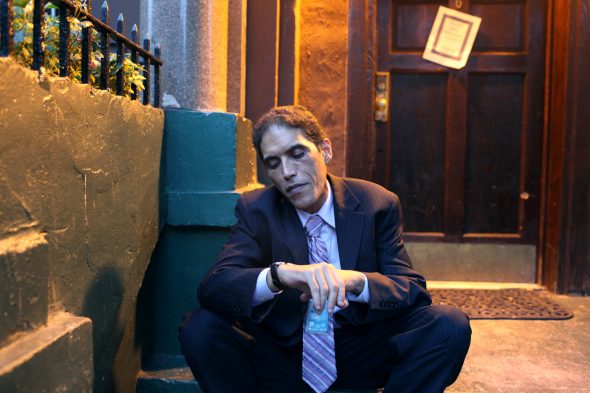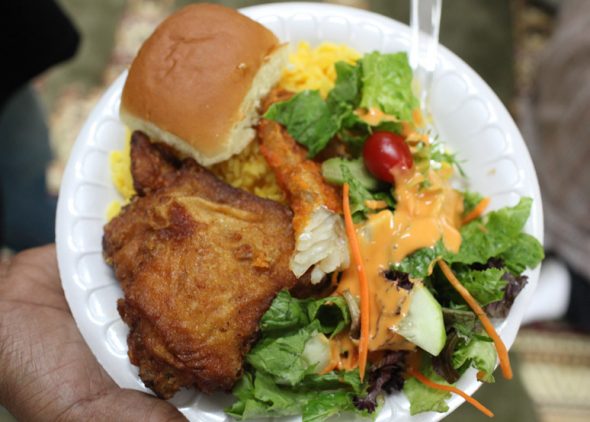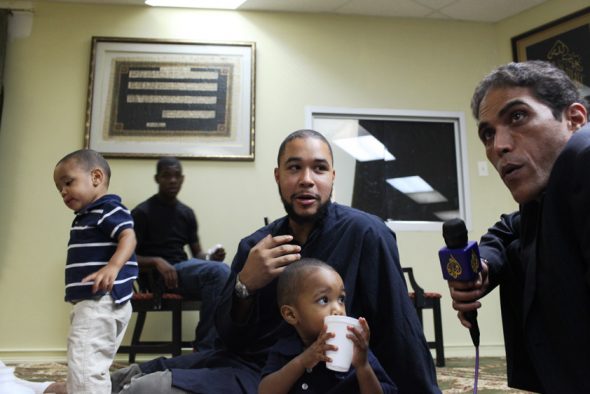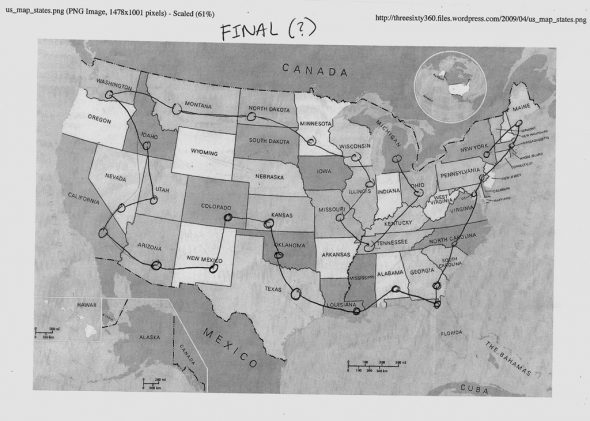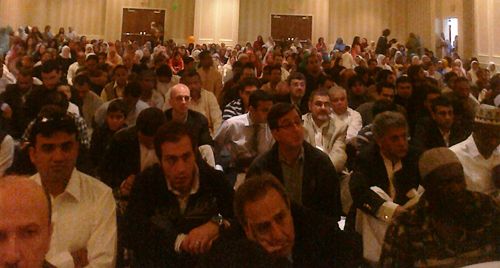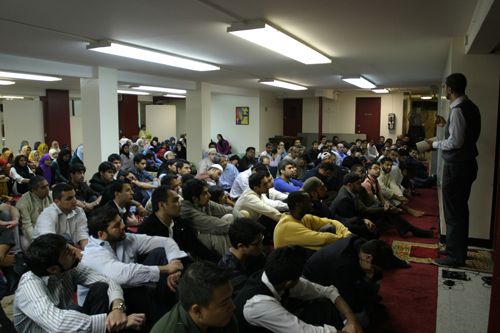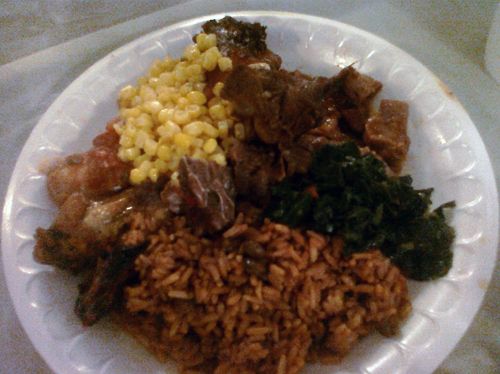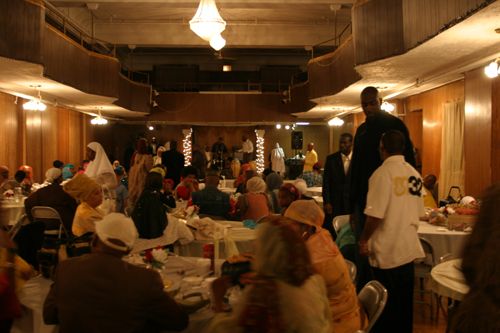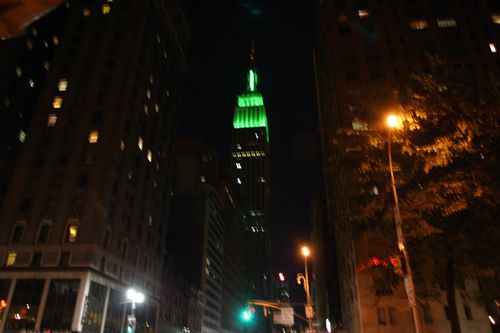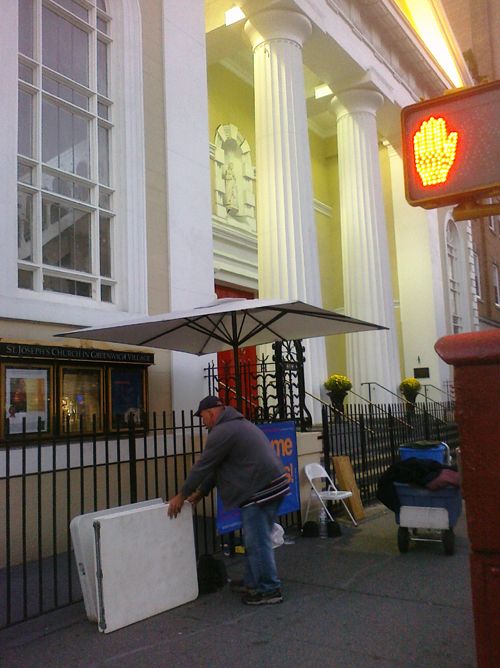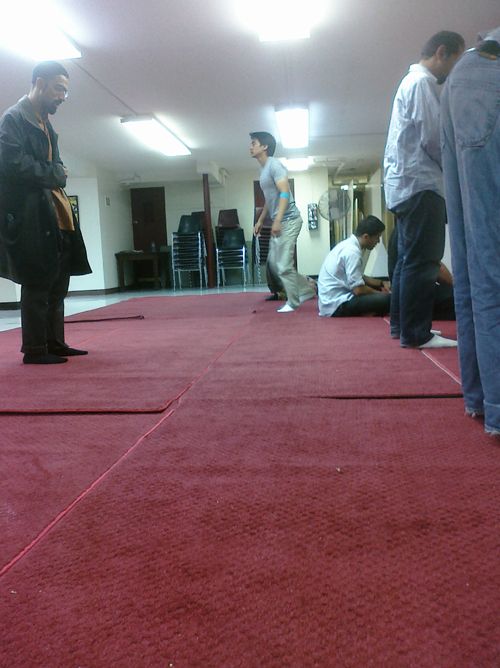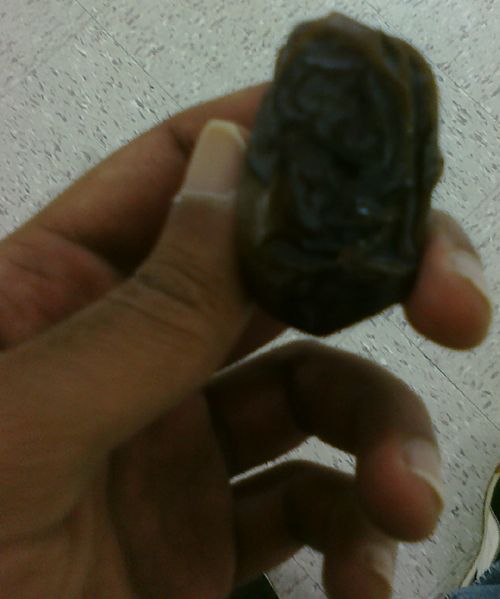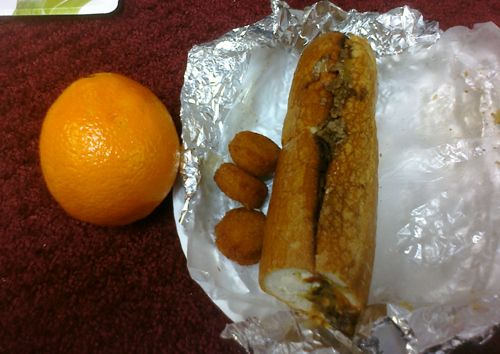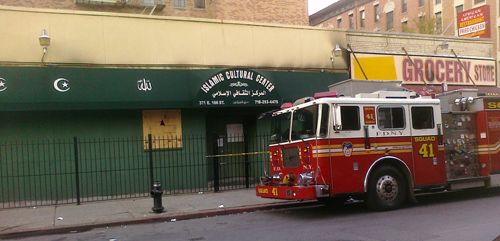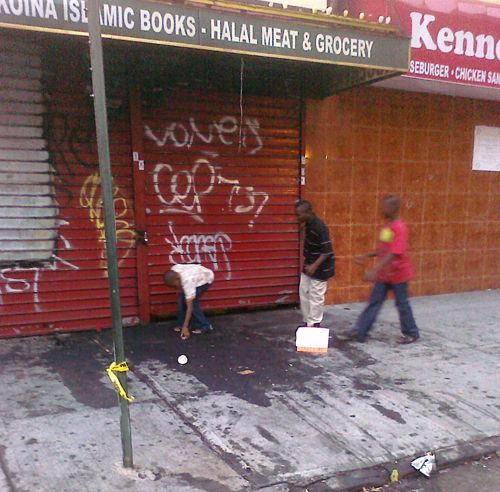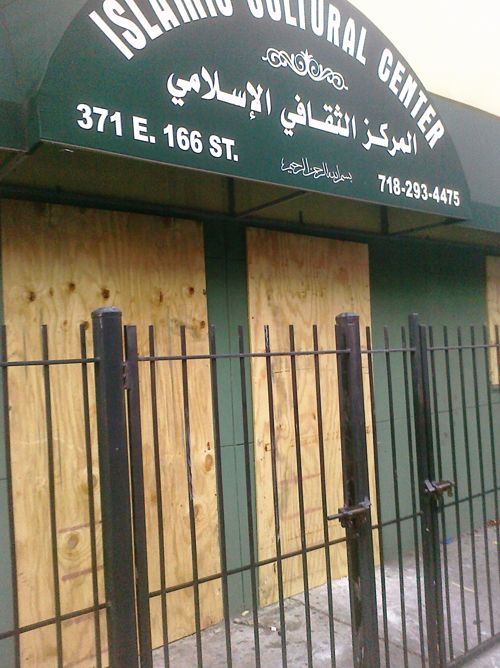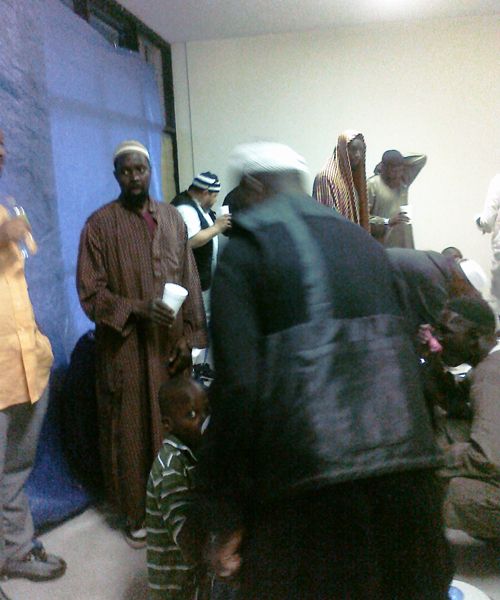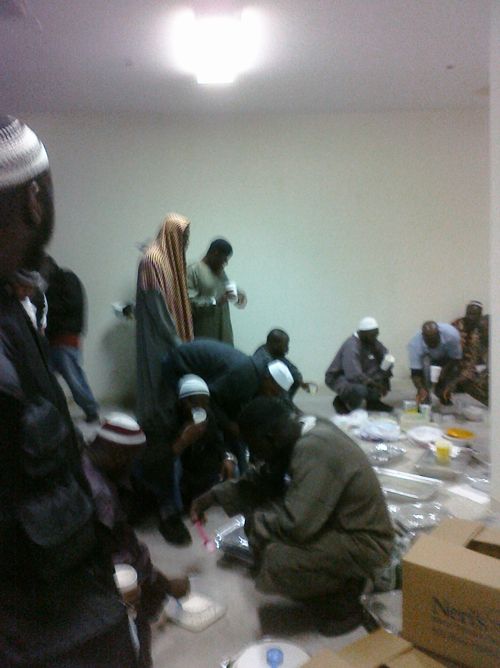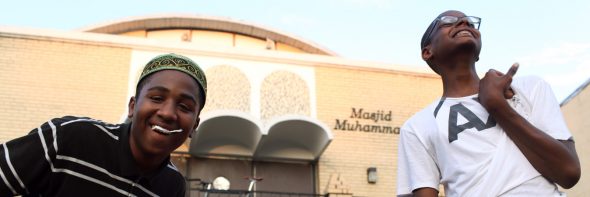
By Bassam Tariq
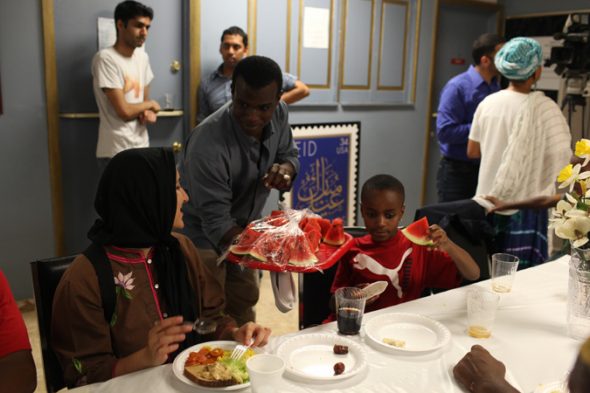
Xavier is ten years old and attends KIP elementary. He devours a watermelon slice sitting next to me and talks about his school. “I’m in fifth grade.” he says, “the school I go to is called Knowledege is P…” He pauses and realizes he doesn’t know what the P stands for, but swears it’s not Power.
Xavier and I are sitting together breaking our fast at Masjid Mohammad, but Xavier isn’t fasting today. “I didn’t feel like it.” He said to me earlier when I first ran into him, “but I did fast yesterday.”
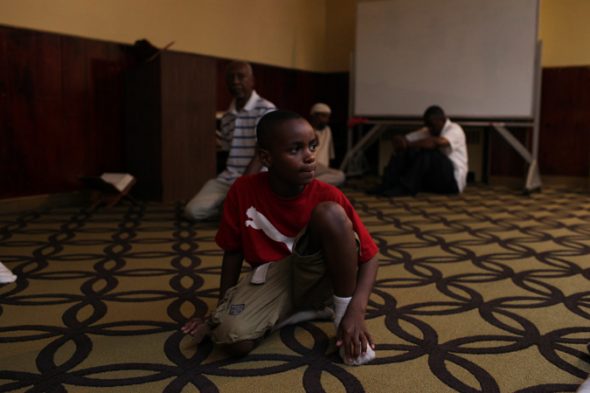
Xavier and I met outside of a corner store near the mosque. These two boys were posing for the camera in front of Masjid Muhammad and I followed them here to this store. Most of the kids that loiter around the mosque aren’t Muslim. Some of them were buying gatorade, others were just sitting by the curb. One kid with a water gun began spraying some of the older girls.
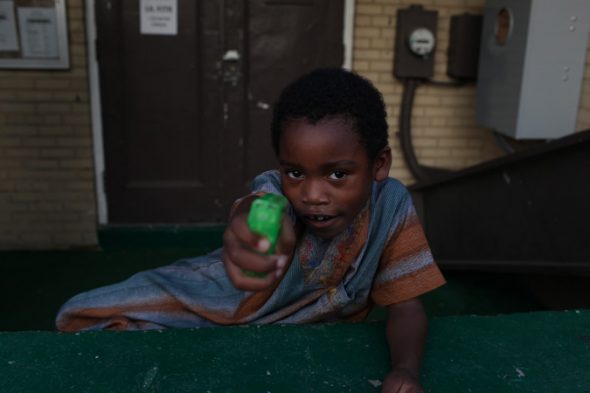
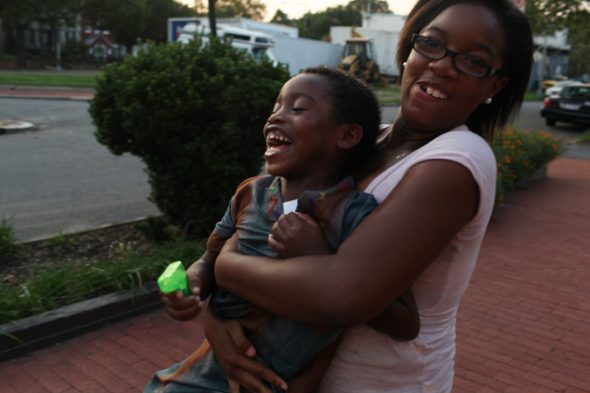
“You like taking pictures don’t you?” One of the girls who got squirted with water gun said to me. She was irritated by me snapping away as she drenched in water.
Xavier was probably the youngest of the crowd, he saw me with the camera and started barraging me with questions.
“Are you Muslim?” He first asked.
“Yep.” I reply.
“Then why aren’t you wearing a kufi?”
I began to laugh and knew that I had struck gold with this kid. The time had arrived for us to break our fast and made sure little Xzavier came along with me back towards the mosque. And that’s where we sit now.
“Give me a minute.” I tell him.
I get out of the seat and walk to the corner of the cafetorium. Al Jazeera is back today and the reporter is ready with a few pointed questions. I’m in a daze and a little tired by the interviews. Aman Ali is the interview guy. He looks better on camera and gives news guys succinct sound bites that are easy to chew. I, on the other hand, ramble, don’t stay on topic, and sometimes make off color comments – and Al-Jazeera today is no exception.
The reporter sees me looking back and wonders what I’m looking for. Before walking back to the mosque with Xavier to break our fast, I told all the neighborhood kids to come to the mosque. They all said they would be there. And, now, as I’m being interviewed, I constantly glance at the door hoping that the kids will show up. The reporter asks for my attention, smiles and continues with the questions. I joke with him saying that this would be a lot easier if we didn’t bring any cameras with him.
The interview finally ends and I lose sight of Xavier. I sit down to finally eat some food and meet with the Imam of the mosque, Tariq Najiullah. Tariq is twice my height and wears a nice suit. If he wasn’t as hospitable as he was, I’d be intimidated by him. But since he is a nice guy, I cut straight to the chase.
“Why aren’t any of the kids that loiter around the mosque here to break their fast?”
“Many of them just hang around the area,” he says, “they don’t come inside much.”
A lot of the kids in the neighborhood have accepted Islam on their own. According to Tariq, kids under the age of 15 seem to be coming through the mosque by the dozens to embrace Islam, for a myriad of reasons.
Masjid Muhammad has a fascinating history. The community was founded by the late Elijah Muhammad and carried on by his son the late Warith Deen Muhammad. Imam Warith Deen helped transition a large portion of the Nation of Islam towards mainstream Sunni Islam after his father passed away. A lot of the mosques around the Northeast used to be temples for the Nation of Islam, but as the congregants slowly began to transition to mainstream Islam so did the temples.
(UPDATE: Thanks to Z, one of our readers, for correcting our originally written info that the mosque was founded by Imam W.D. Muhammad)
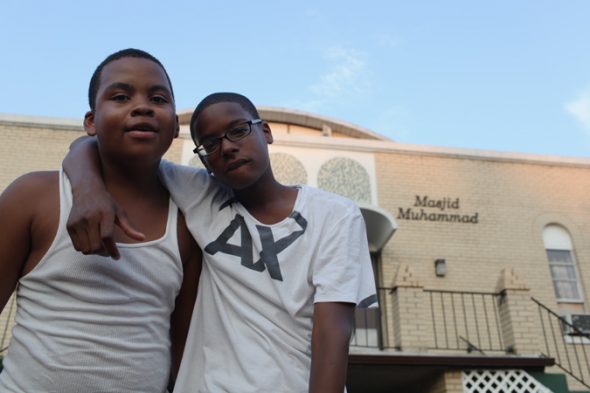
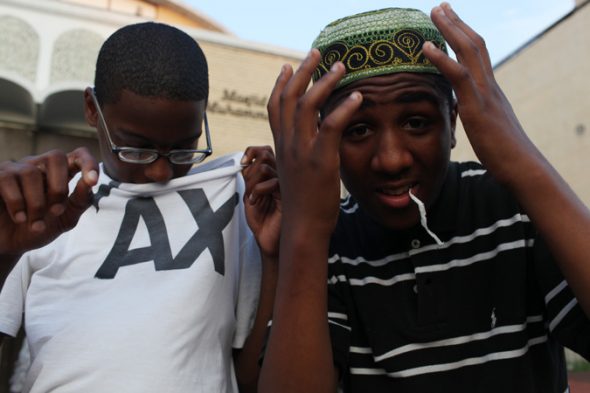
A little while later, I see Xavier walking around the cafeteria.
“Where’d you go?” I ask him.
He shrugs.
“So where are your friends?”
“They are outside.”
“Are they not coming here?”
“I don’t think so.”
“But they said they would come.”
He shrugs again.
“Well, then lets get to them.”
Xavier and I leave the cafeteria together. As I walk out of Masjid Muhammad, two of my friends who live around the area join us on the quest to find the elusive neighborhood kids.
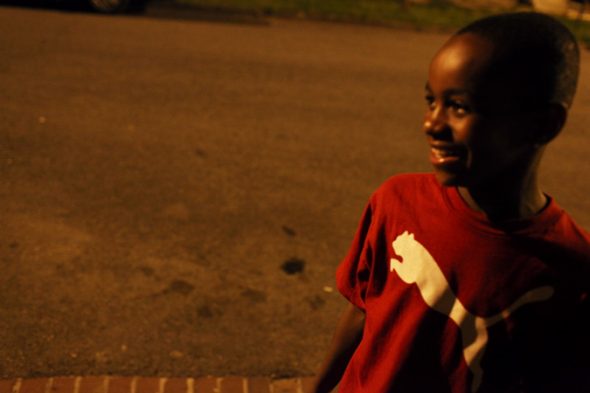
“Hey dude, didn’t your bike get robbed here?” My one friend asks the other.
“Yeah, it was in broad daylight. And these kids were trying to steal my bike.”
“Oh, did it happen over there?” Xavier asks pointing at one of the corners of the street.
“Uh, yeah.” My friend who had his bike robbed says.
“Oh yeah. I was there.” Xavier says laughing.
“Really?”
“But I wasn’t stealing the bike. I was just standing on the side and laughing. I didn’t want to get in trouble with the police.”
Thankfully, my friend ran out with a bat in his hand and scared the kids off. It was broad daylight after all.
Xavier takes us four blocks away from the mosque.
“So where are these guys?” I ask him.
“I don’t know, this is where they usually hang out.”
We wait a while in the silence, kicking the dirt and playing with our plastic cups. Out of nowhere, the kids finally appear on bikes.
“Hey guys!” I scream.
They ignore me and continue biking forward.
“Whats wrong? I thought I’d see you at the mosque for break fast?”
“Man, you just love taking snaps with your camera.” One of the kids says laughing as he bikes passed us.
I stand still watching them fade into the distance. A lot of the questions I had for these kids will be left unanswered.
“They are headed out to Q street. That’s the projects.” Xavier says.
I turn around and start walking back towards the mosque.
“Will you come back?” Xavier asks.
I nod. Next time it will probably be without a camera.
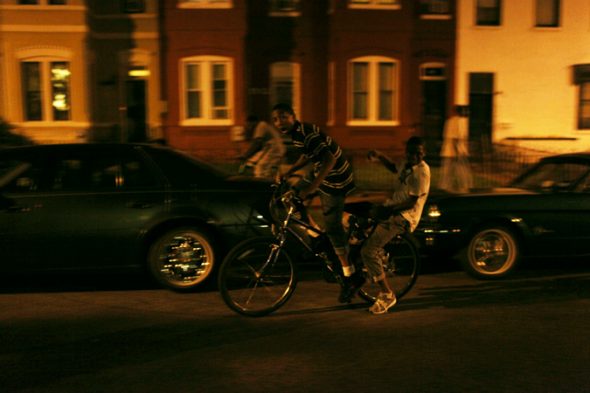
photos by Bassam Tariq
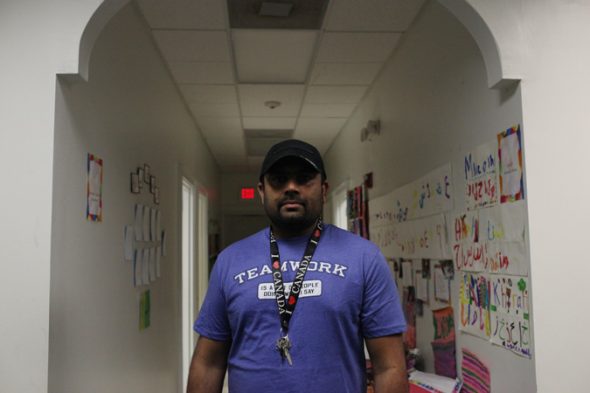
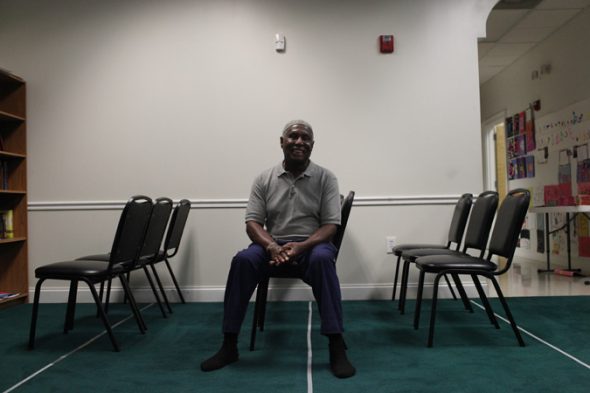
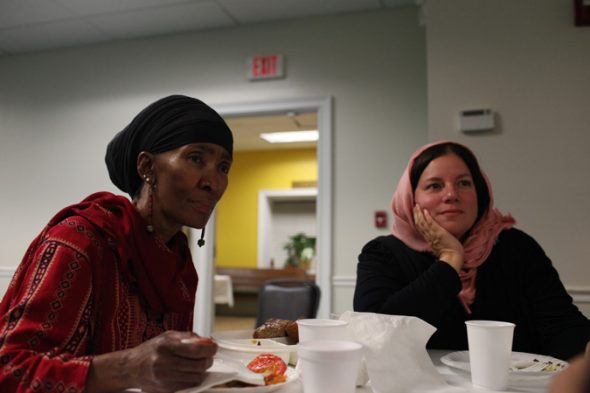
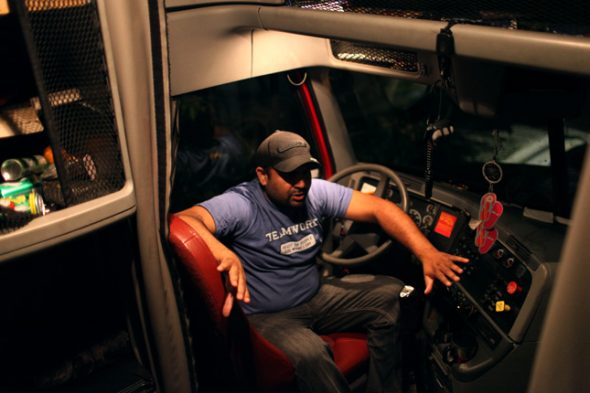
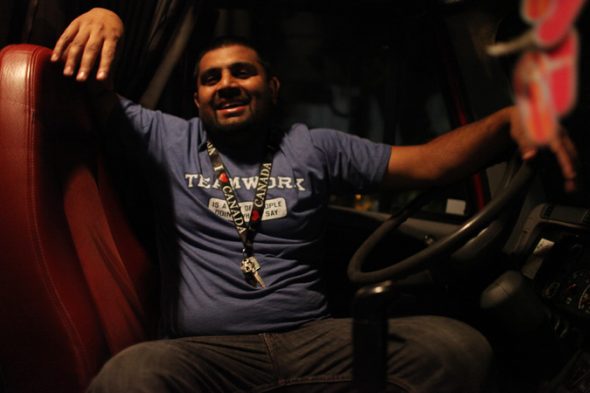
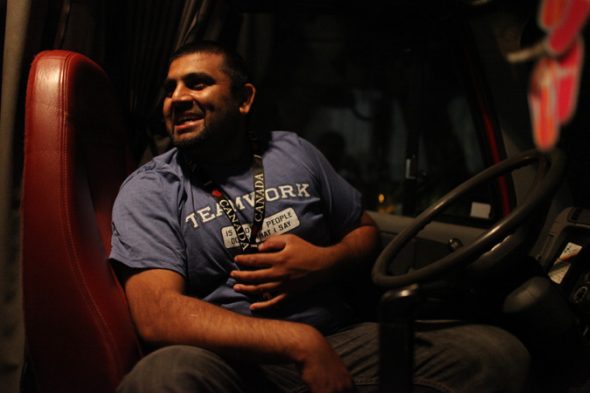
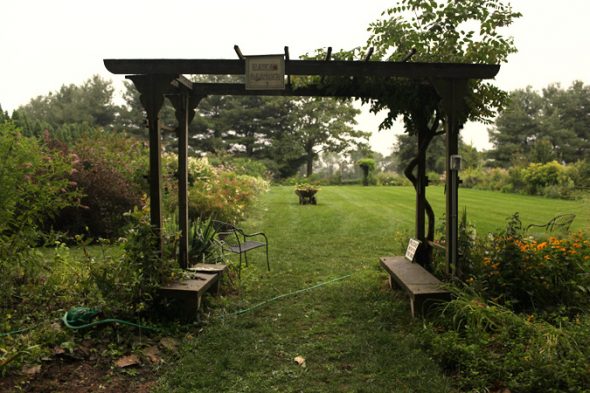
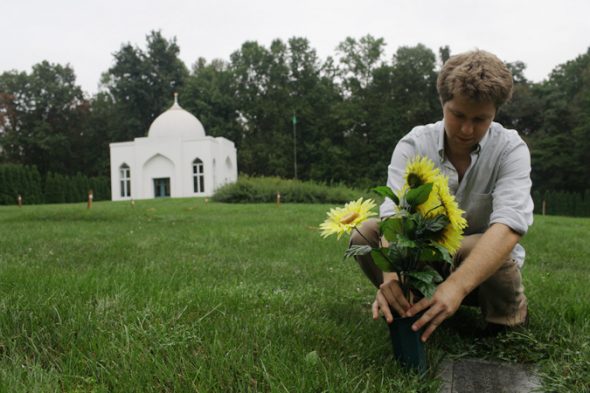
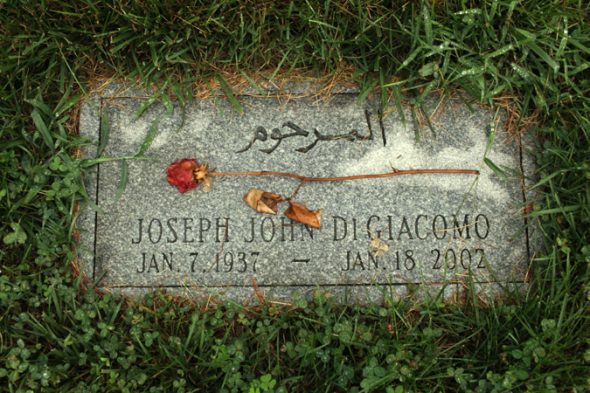
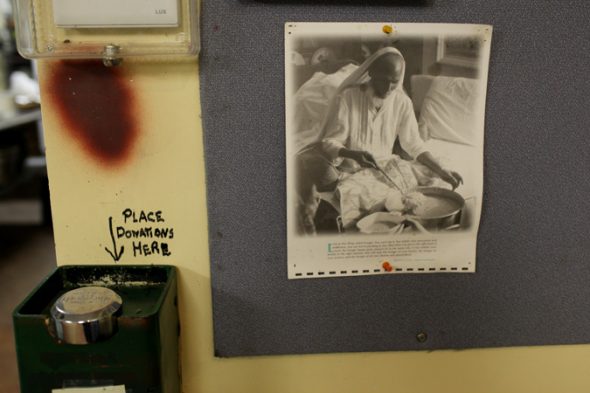
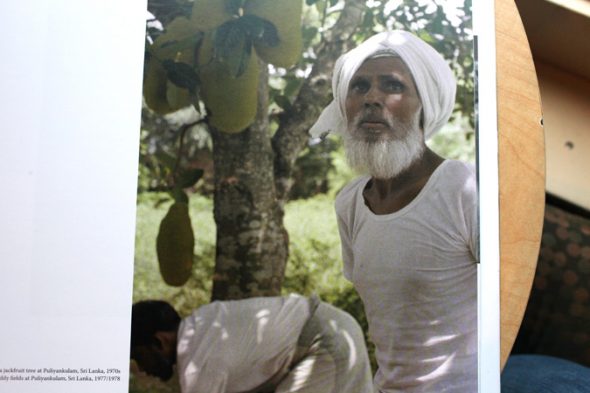
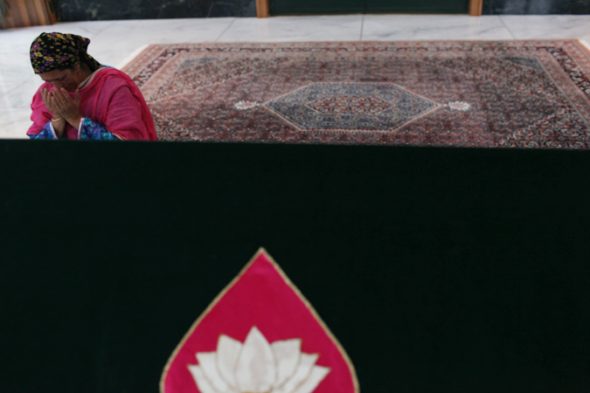
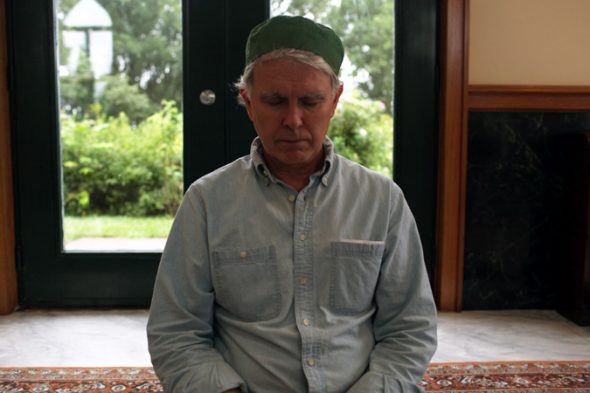
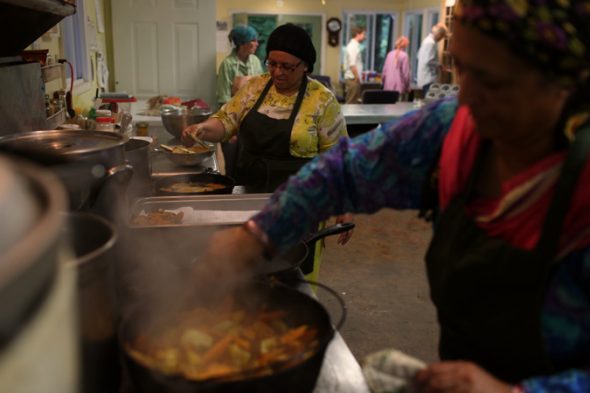
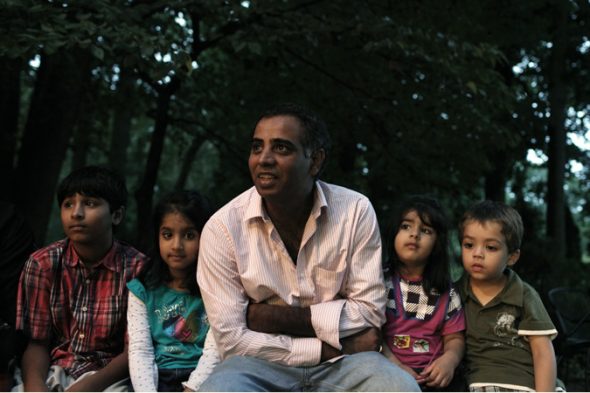
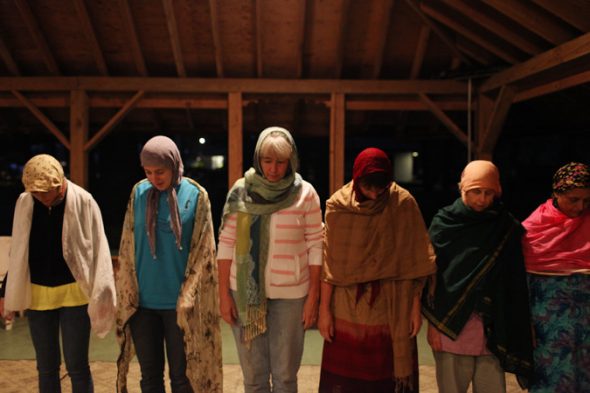
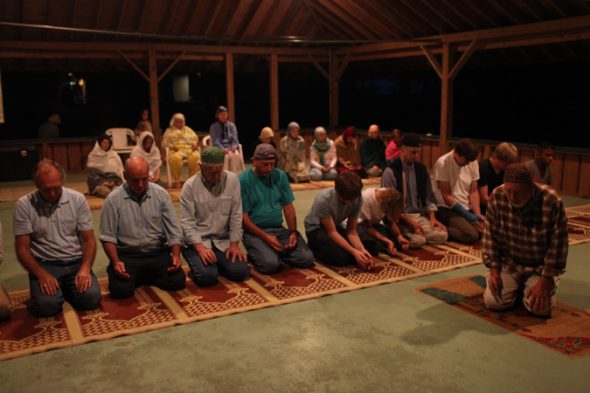
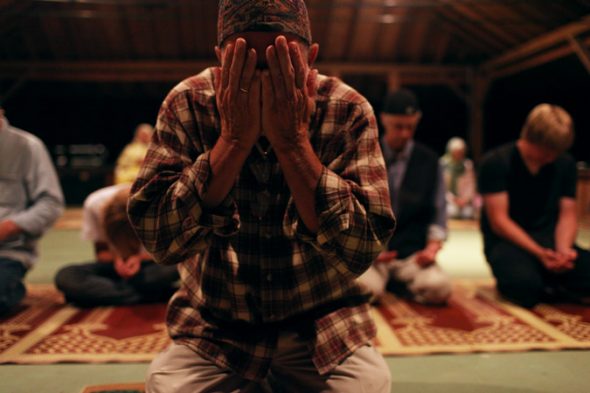
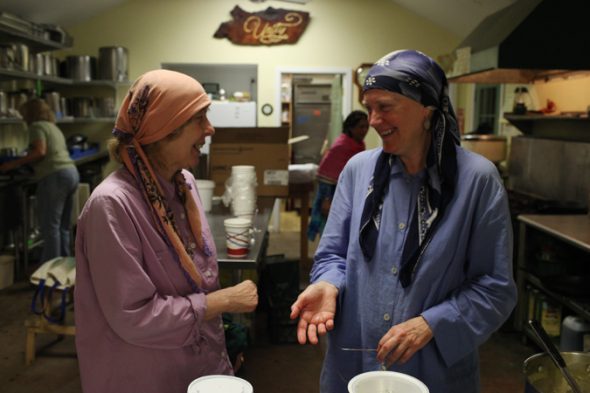
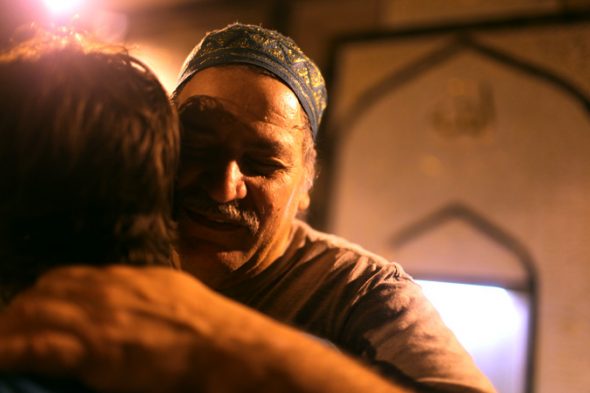
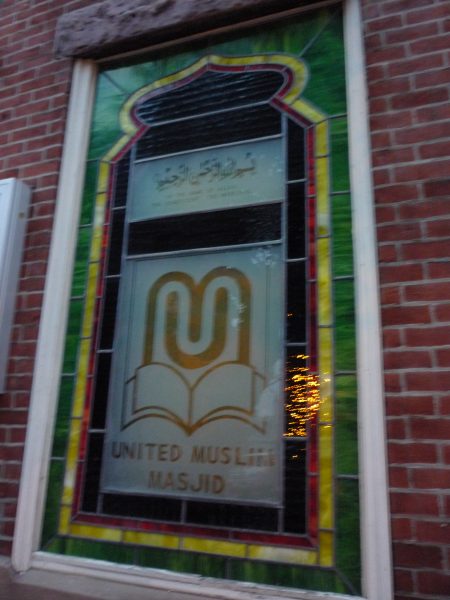
 One of the cool things about Philadelphia is how strong the Muslim presence is here. Even some of the gangbangers and drug dealers unknowingly have adopted traditional Muslim styles of dress such as long beards and rolled up pant legs as some kind of fashion trend. This boy in the mosque was wearing an izaar, or as I like to call it “The Muslim Man Skirt.” He was telling me that it’s not uncommon to see several non-Muslim kids in school rock the same outfits. I woulda worn one too tonight, but I didn’t get a chance to shave my legs.
One of the cool things about Philadelphia is how strong the Muslim presence is here. Even some of the gangbangers and drug dealers unknowingly have adopted traditional Muslim styles of dress such as long beards and rolled up pant legs as some kind of fashion trend. This boy in the mosque was wearing an izaar, or as I like to call it “The Muslim Man Skirt.” He was telling me that it’s not uncommon to see several non-Muslim kids in school rock the same outfits. I woulda worn one too tonight, but I didn’t get a chance to shave my legs.